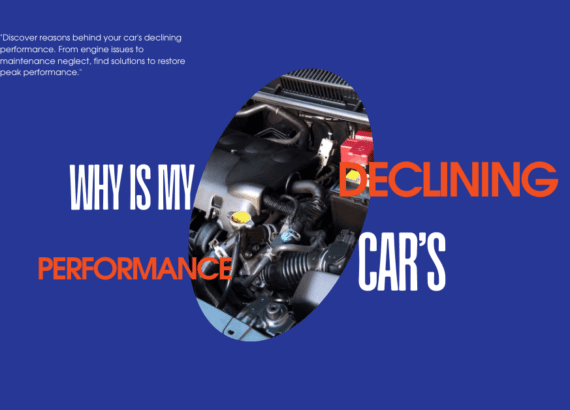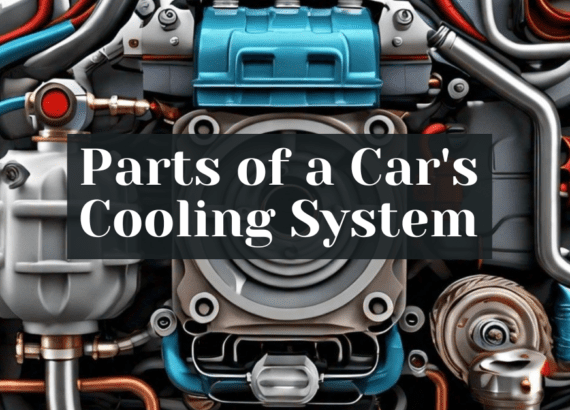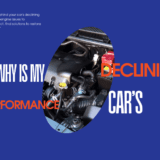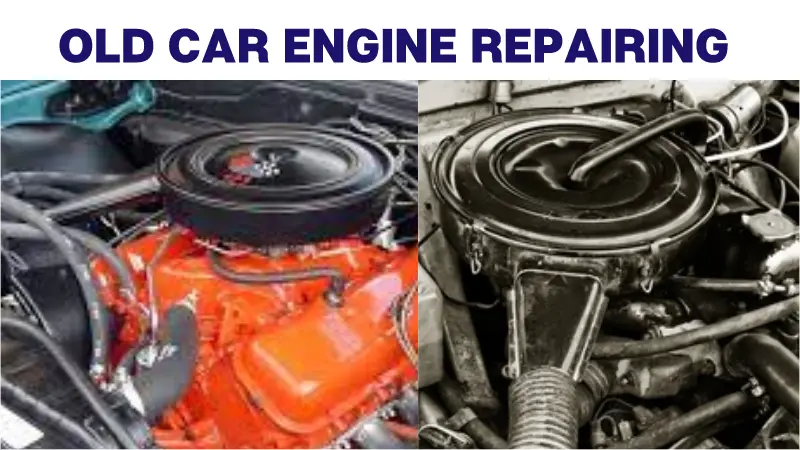How To Improve A Diesel Truck’s Fuel Economy

As someone who has navigated the complexities of optimizing diesel trucks’ fuel efficiency across various realms such as agriculture, commercial transportation, and even construction. I’ve come to recognize that the path to reducing fuel consumption and elevating mileage goes beyond basic upkeep. This journey to save money on fuel—a quest made imperative as prices rise—entails a blend of behavioral adjustments and technical modifications. Particularly pertinent for owner-operators and fleet directors. They are constantly seeking ways to not just increase profit but also to operate within the standard of near zero emissions that many sectors are moving towards.
Taking a leap into advanced technology and aftermarket modifications marks a significant stride in this efficiency quest. The focus isn’t solely on adhering to environmental standards but on tapping into modifications that enhance engine efficiency. Conversations with experts like Allen Schaeffer, Executive Director of the Diesel Technology Forum (DTF). Illuminate how modern engine technologies and energy-efficient equipment can play a pivotal role.
For instance, incorporating high-efficiency fuel injectors and ensuring rigorous maintenance routines can dramatically shift the consumption dynamics. This approach is not just about making one-time modifications; it’s about integrating efficient driving and maintenance practices—ensuring tires are rightly inflated and engines are checked at regular intervals by a qualified mechanic, for instance.
It’s fascinating to observe how these efficiency-enhancing measures translate across various equipment uses, from trucks carrying goods to machinery used on the farm. Such strategies apply universally, benefiting vehicles of different sizes and making an impactful save on gallons used.
This amalgamation of smart technology and behavioral wisdom not only helps in curbing fuel consumption but also directs us towards a more sustainable, profitable. Efficient utilization of diesel engines, thereby reflecting a convergence of economic and environmental wisdom in the real-world movement of goods and services.
Aerodynamic Drag Reduction
In the realm of trucking fleets, mastering the art of fuel efficiency hinges not just on the mechanical but also on the sleek and the streamlined. My journey through countless highways and byways. Hauling from coast to coast, has ingrained a deep appreciation for the impact of aerodynamic drag reduction. The secret to saving thousands of dollars a year on fuel doesn’t come from under. The hood—it embraces the very air we slice through.
By installing drag-reducing devices such as fairings, side skirts, and wheel covers, we manipulate the airflow, transforming our rigs into more fuel-efficient behemoths. I found that these weren’t just theoretical enhancements but practical improvements, with every vent and curve designed to reduce drag. The addition of vortex generators and vented mud flaps allowed for a smoother passage through the air, markedly improving fuel economy.
Yet, it’s not merely about attaching a few pieces and calling it a day. Utilizing these methods requires a keen understanding . How each component—be it drive fenders or side skirts—plays its part in the larger symphony of fuel efficiency. This symphony, when conducted properly, not only improves the fuel economy of trucking fleets but also contributes to a lower environmental footprint, making it a double win.
So, embarking on this journey of reducing drag, I discovered that the path to improve a diesel truck’s fuel economy is multifaceted. Blending the need for speed with an unwavering commitment to efficiency. It’s a testament to how methods honed over countless miles can save significant sums of money. Proving that sometimes, the biggest savings come from simply understanding the air that surrounds us.
Air Intake & Air Filters

When we delve into the realm of air intake and air filters. We’re tapping into a critical aspect of a combustion engine’s health and efficiency. I remember upgrading my truck with a cold air intake system; the difference it made was not minimal. Such advanced products are designed to draw cooler air into the engine, thus enhancing diesel engine performance.
Cooler air is denser, feeding the engine more oxygen for combustion and, subsequently, more power. But it’s not just about power—adequate flow and premium air filters play a crucial role in maintaining engine durability across every season. The initial cost may appear significant. But the boost in fuel mileage and the protection it affords your engine argue strongly in favor of the investment.
Vehicle Monitors
Switching gears to vehicle monitors, I was initially skeptical about the real-time track capabilities and their impact on fuel economy. However, installing a monitor changed my perspective drastically. It provides instant feedback on how aggressive driving or even just inconsistent speed can cause your miles per gallon to plummet. By keeping an idle watch on vital systems. I’ve become more adept at maintaining a steady speed, significantly affecting my truck’s fuel efficiency.
Driving Strategies
Driving strategies can be the most cost-effective way to improve fuel economy. Adjusting your driving style to focus on smooth acceleration and braking conserves energy; after all, wasted energy from harsh braking or rapid acceleration just turns into heat and wear on the brake pads. I found that maintaining a steady speed, using cruise control on long stretches of highways. Avoiding the urge to accelerate to pass only to brake for a red light a few blocks down the road can make a noticeable difference. It’s about finding that fuel-efficient speed—for most diesel engines, this is around 55 mph.
Inflate Tires Properly
One lesson I learned the hard way involves underinflated tires. They can dramatically reduce fuel efficiency. After installing a simple pressure gauge in my toolkit and keeping a compact air compressor in the trunk. I’ve made it a habit to regularly top up my tires. It’s a small act, but the impact on fuel efficiency is anything but negligible.
Air Conditioning and Heating
Then there’s the debate about air conditioning and heating. Balancing the power it takes to avoid having to swelter or freeze can be tricky, considering how temperature settings and the use of your car’s climate control system influence fuel consumption. Driving with the windows down increases aerodynamic drag, particularly at highway speeds, which, contrary to what some may think. Can decrease fuel economy more than using the AC. This insight reminded me of a MythBusters episode and has since changed how I manage my truck’s climate, especially during city and highway driving.
Performance Upgrades
Considering performance upgrades, the precision with which these engine components—from the fuel pump to the fuel injection system and the electronic control module—are selected and installed can dictate the timing and quality of fuel delivery. Opting for advanced models of these parts can purify your diesel engine’s performance and, by extension, its fuel efficiency.
Keeping Your Engine in Top Condition
Above all, keeping your engine in top condition is paramount. Regular tune-ups, changing old filters, and ensuring there is no build-up of residue can improve both the health and economy of your vehicle. In my case, making. Sure the engine and fuel system are clean and maintained like new has not only ensured optimal performance but has also extended the life and fuel efficiency of my truck.
Tips to Reduce Diesel Fuel Consumption
- Smooth Driving and Advanced Cruise Control: Leveraging predictive cruise control systems to maintain optimal engine load and consistent speeds. Aim for 55 mph to enhance mpg, as speed increases above this threshold can decrease fuel economy.
- Optimal Gear Usage: Driving in the highest gear possible without overloading the engine conserves fuel by reducing RPMs.
- Idle Time Reduction: Avoid unnecessary idling, which burns approximately a gallon of fuel per hour, by turning off the engine when not actively traveling.
- Tire Pressure Maintenance: Keeping tires properly inflated ensures fuel efficiency. Underinflated tires lead to reduced tread life and decreased fuel economy.
- Regular Preventive Maintenance: Adhering to recommended schedules for oil changes, air filter replacements, and other maintenance tasks helps maintain engine efficiency.
- Appropriate Equipment Sizing: Utilize vehicles that are adequately powered for their loads. Overworking underpowered equipment is inefficient, thus selecting the right size machinery for the job is crucial.
- Technology and Fuel Upgrades: Considering newer, more efficient vehicles equipped with modern technology, or using high-quality biodiesel and renewable biofuels, supports more sustainable operations and reduces greenhouse gas emissions.
These strategies collectively contribute to reducing diesel fuel consumption, saving money, and promoting environmental sustainability.
Behavioral Ways to Increase Diesel Engine Fuel Mileage

Behavioral Adjustments for Fuel Efficiency:
- Accelerate Gently: Avoid rapid acceleration to reduce fuel consumption.
- Use Cruise Control When Appropriate: Maintains constant speed, improving fuel economy on highways.
- Minimize Idle Time: Turn off the engine during prolonged stops to save fuel.
- Maintain Steady Speeds: Avoid frequent speed changes to reduce fuel usage.
- Plan Routes Efficiently: Choose routes with fewer stops and less traffic to decrease fuel burn.
Technical Upgrades and Maintenance:
- Regular Engine Maintenance: Keep the engine in optimal condition to ensure fuel efficiency.
- Tire Pressure Check: Properly inflated tires reduce rolling resistance, improving mileage.
- Use High-Quality Fuel and Oil: Premium fuels and synthetic oils can enhance engine performance and efficiency.
- Engine Tuning: Adjust engine parameters for a balance of power and fuel economy.
- Aerodynamic Modifications: Install skirts, spoilers, and reduce drag-inducing accessories to improve airflow and reduce fuel consumption.
Load Management:
- Reduce Excess Weight: Carry only necessary items to decrease fuel use.
- Balanced Loading: Evenly distribute cargo to minimize engine strain.
- By focusing on these strategies, diesel truck operators can achieve better fuel economy, resulting in cost savings and reduced environmental impact.
Conclusion
In conclusion, navigating the maze of strategies to improve the fuel economy of diesel trucks reveals a multifaceted approach that stretches beyond simple engine maintenance to encompass a broader spectrum of behavioral and technical strategies. From the fundamental adjustments in driving practices. Such as gentle acceleration and optimized cruise control usage, to the implementation of advanced aerodynamic modifications and vigilant maintenance schedules, each step plays a crucial role.
Beyond these, the strategic selection of performance upgrades and the meticulous management of load and tire pressure underscore the comprehensive nature of achieving enhanced fuel efficiency. This journey, rich with insights drawn from hands-on experiences across different terrains and sectors – including agriculture, commercial transportation, and construction – underscores a relentless pursuit of not just economic gains but a commitment to environmental stewardship.
By marrying intelligent technology with prudent driving habits, operators are not only poised to witness a significant decrease in fuel consumption but also contribute meaningfully to the global agenda of sustainable and efficient energy use in the movement of goods and services. This convergence of economic savvy and environmental consciousness charts a forward-thinking path for diesel truck operators, promising a future where efficiency and profitability align seamlessly with the imperative of sustainability.
FAQs
How can I increase the efficiency of my diesel engine?
- Use the Right Oil
- Check Exhaust Emissions
- Regularly Change the Oil and Filter
- Upgrade Your Engine Thermostat
- Check Fuel Lines
- Maintain Proper Tyre Pressure
- Monitor Air Intake System
- Improve Combustion Efficiency
Why is my diesel truck using so much fuel?
High fuel consumption is usually caused by a dirty Fuel System. (filters, injectors, valves and piston heads). Residue and deposit build-up in the fuel system will limit its capacity to deliver fuel to the engine and will cause an inefficient combustion and loss of power. The engine will use more fuel for less mileage.
What is the best speed for fuel economy diesel?
Midsize conventional gasoline cars achieve their best fuel economy at 55 mph. The fuel economy of midsize conventional diesel cars declines gra 000dually from 45 to 55 mph and then drops quickly thereafter. The midsize hybrid electric vehicle loses efficiency more evenly between 45 and 75 mph.
How do I adjust my carburetor to reduce fuel consumption?
There should be two screws on the front of the carburetor, which are used to adjust the air and fuel mixture. These often look like flat-head screws, and you can use a screwdriver to turn them, adjusting the amount of fuel and air mixing in the carb.











